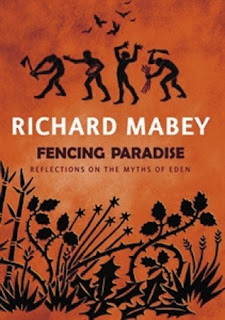Richard Mabey is one of my favourite nature writers and so I looked forward to reading this book. I have to admit to some disappointment, but that's partly because I hadn't realised beforehand that this is a book that Mabey wrote during his time as writer in residence at the Eden Project in Cornwall.
So rather than the straightforward exploration of the history of human relationships with plants that I was expecting, this is more of a tour of the biomes at the Eden project with the history of our uses and abuses of plants wound into it. It's still an interesting book, but too often feels like a tourist guide to an attraction I currently (due to COVID restrictions) am unlikely to be able to visit for quite some time.
On the plant history side of things, Mabey is an excellent communicator and this book explores some interesting aspects including the "insights [myths] provide into larger truths, often about our relationship with nature"
It also looks at how colonialism has affected the distribution of plants (from crops such as rubber to ornamentals (which have now become invasive species) such as giant hogweed) plant collecting for science and botanical art. It offers fascinating insights into the history of hemp cultivation in the United Kingdom (during the reign of Henry VIII farmers were required to plant a certain proportion of their land with hemp, it was considered so valuable a fibre, while now it can only be grown under special licence).
There's also some sobering comments on the concept of sustainable development, this quote below being typical:
"Nature conservation bodies in the rich areas regard sustainable development as the provision of small, multi-purpose green spaces around a new motorway or airport, regardless of the sustainability of the development itself."
The ultimate conclusion of the book is one that I can truly agree with, but not sure how much mainstream acceptance it will have:
"...we need to turn our conventional relationship with nature upside down, begin to learn from it, rather than just about it, let natural systems take the lead for once."
Fencing Paradise by Richard Mabey, illustrated by Sue Hill, published (2005) by Eden Project Books (though no longer available through their website).

1 comment:
Nice review. Thanks.
Post a Comment